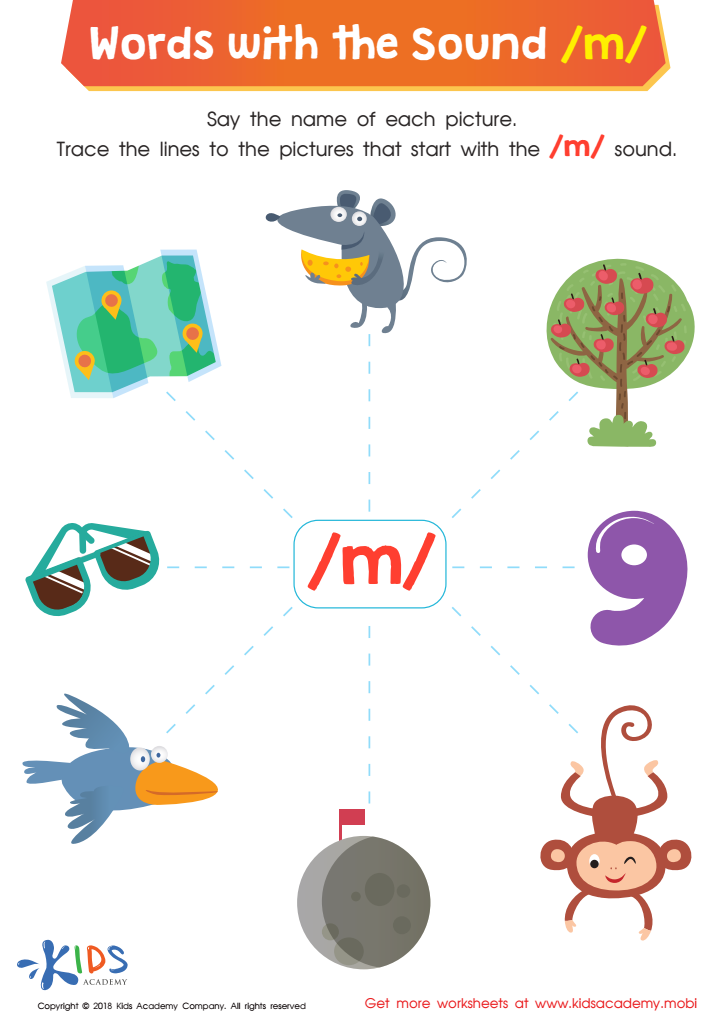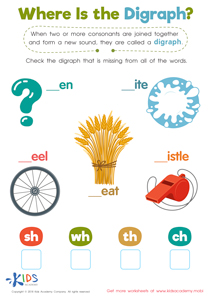Phonics practice Beginning Consonants Worksheets for Ages 4-7
4 filtered results
-
From - To
Welcome to our "Phonics Practice: Beginning Consonants Worksheets" designed for children ages 4-7! These engaging worksheets help young learners master the sounds that initiate words, building a strong foundation for their reading skills. With vibrant illustrations and interactive activities, children will identify and match beginning consonants, enhancing their phonemic awareness while making learning fun. Perfect for classroom use or at-home practice, our worksheets cater to various learning styles, ensuring every child can thrive. Explore our thoughtfully crafted resources and empower your child’s literacy journey with the essential skills needed for reading success! Start your phonics adventure today!


Twin Onset Worksheet


Words with sound p Reading Worksheet


Words with sound f Reading Worksheet


Words with Sound M Reading Worksheet
Phonics practice, particularly focusing on beginning consonants, is a crucial aspect of early literacy development for children aged 4-7. Understanding beginning consonants helps young learners decode words, which is vital for reading fluency and comprehension. When children grasp the sounds that accompany initial letters, they can better approach unfamiliar words and enhance their spelling skills.
For parents and teachers, reinforcing phonics at this stage lays the foundation for future reading success. Engaging with beginning consonants fosters critical thinking and phonemic awareness, essential skills required for learning advanced language concepts later on. Activities like identifying initial sounds in words, playing sound games, and using alphabet books can make learning enjoyable, capturing children's interest and promoting a lifelong love for reading.
Moreover, children who develop a solid foundation in phonics tend to perform better academically as they progress through school. This advantage can instill confidence and motivation, encouraging them to tackle challenges as they encounter more complex texts. Ultimately, prioritizing phonics practice enriches children's language skills, enhances cognitive development, and empowers them in their educational journeys. By focusing on beginning consonants, parents and teachers play a vital role in supporting early learners' efforts to become proficient readers.

 Assign to My Students
Assign to My Students










